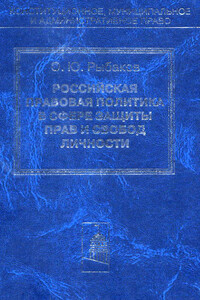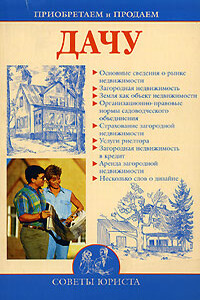Конституционно-правовые аспекты осуществления законодательной власти по обеспечению правопорядка в России - [2]
В связи с этим очевидна потребность конституционно – правового анализа правовой природы двух на первый взгляд разных, но достаточно взаимосвязанных и взаимообусловленных публично-правовых явлений: законодательной власти и правопорядка, в обеспечении которого участвуют, в том числе и законодательные органы. Рассмотрение их конституционно-правовой характеристики и проблем осуществления законодательной власти по обеспечению правопорядка предпринимается в настоящем издании.
Эффективность исследования заключается в концептуальном рассмотрении правовой природы и взаимообусловленности правопорядка и законодательной власти, места последней в системе публичной власти и механизме разделения властей, характеристики конституционно-правового статуса органов законодательной власти, их участия в парламентских процедурах и конституционно-правовом механизме обеспечения правопорядка органами публичной власти в России.
Introduction
Constitution of the Russian Federation declared that Russia – a legal democratic federal state (Article 1), in which the government operates on the basis of the principle of separation of powers between the legislative, executive and judicial powers (Art. 10). According to modern political and legal doctrine main distinguishing feature is the rule of law and supremacy of the Constitution, priority of principles of law.
Recognition of the importance of the Constitution of the Russian Federation, its supreme legal force and direct action, priority and constitutional values is essential to the quality of the legal order of formation and effective functioning of all branches of government. Laid down in the Constitution and its interpretation revealed by the values have a fundamental impact on the rule of law, determine the focus of constitutional modernization of Russia. Meanwhile, put forward the idea of constitutional consensus is evident not only in the adoption of the Constitution, but also in the implementation process, the final result – the rule of law.
In the context of reforming the vertical of power and state-legal transformations of great interest are the issues of functioning of the government, in particular, the legislative branch, which occupies a special place in the system of separation of powers, as this government creates rules of conduct for which, and pursuant to which the executive and work judicial branch, provided the constitutional legality and the rule of law is established.
The Legislature, being an integral part of the political and legal reality, gradually strengthens the position in the system of public law institutions of the Russian state. Adoption of the ideas of parliamentarism, activation and strengthening the role of the legislature determines the development of constitutional and legal mechanisms aimed at improving the regulation and operation of the public authorities involved in law enforcement.
Legislative power – the paramount power, maintain law and order. It is the legislature factor in the formation of law and order, power, creative rule of law in constitutional and legal limits. And one of the goals of its activity is the formation of the rule of law of a certain quality.
In the legislative branch functioning set of legislative bodies – conventionally called parliaments, which, realizing the law-making function, take generally binding legal regulations, which operate all public authorities, public and formation of citizens. Thus, the legislature have an impact on the qualitative state of the rule of law in Russia.
Therefore, the reforms in the field of state-building related to the modernization and strengthening of legislative power in the system of separation of powers, imply the need to rethink the constitutional and legal aspects of the implementation of the legislature to ensure the rule of law in Russia, defining its place in the transformation of public power and the separation of powers, identifying the role of legislatures in the creation and the rule of law in Russia.
Basic principles and provisions of the legislature are governed by the Constitution of the Russian Federation, federal laws and the laws of the Russian Federation. The important role played by the Constitutional Court of the Russian Federation, which established many of the legal position, which formed the basis of the constitutional and legal regulation of the formation and activities of the legislature.
In this regard, a clear need constitutional and legal analysis of the legal nature of the two seemingly different but quite interconnected and interdependent public legal phenomena: the legislature, and the rule of law, which are involved in providing, including legislatures. Consideration of their constitutional and legal characteristics and problems of the exercise of legislative power by law enforcement is undertaken in this publication.
The effectiveness of the study is a conceptual examination of the legal nature and interdependence of the rule of law and the legislature, the last place in the system of public authorities and the mechanism of separation of powers, the characteristics of the constitutional and legal status of the legislature, their participation in parliamentary procedures and constitutional and legal mechanisms for enforcement by public authorities in Russia.

В книге представлены очерки, посвященные охоте за серийными убийцами, расследованию загадочных преступлений, таинственных исчезновений людей и других различных загадочных происшествий, вошедших в историю мировой криминалистики.

Автор посвящает нас в тайны криминалистики. Что именно на месте преступления следует осматривать в первую очередь? Где могут оставаться отпечатки пальцев и как их искать? Какие технологии используют криминалисты? Отвечая на эти и другие важные вопросы, автор опирается на опыт израильской полиции, известной своей эффективностью. Борис Геллер щедро делится своими знаниями, вспоминает случаи из собственной практики, рассказывает об истории становления криминалистики и о состоянии криминалистических служб многих стран мира, в том числе России.

Представленная вниманию читателя монография отражает исследование проблемы прав и свобод личности в России на основе и способами современной правовой политики. Анализируются формы, виды, обозначаются приоритеты и тенденции развития правовой политики в сфере защиты прав и свобод личности. Исследуется влияние правовой политики на формирование правовых качеств, культуры, правосознания личности, ее правового статуса. Для научных работников и преподавателей, аспирантов, студентов, юристов-практиков, государственных и муниципальных служащих, политиков, всех тех, кто интересуется проблемами правовой политики в сфере защиты прав и свобод личности.

Учебное пособие представляет собой комплексное исследование в области сравнительного и международного семейного права. Первая глава раскрывает общие вопросы правового регулирования брачно-семейных отношений, осложненных иностранным элементом, главы со второй по шестую охватывают основные институты в данной сфере. В конце каждой главы размещены вопросы для самоконтроля степени усвоения материала.Законодательство и международные правовые акты использованы по состоянию на 1 января 2015 г.Предназначено для студентов второй ступени высшего образования (магистратуры), обучающихся по специальности 1-24 80 01 «Юриспруденция».

В последнее время загородные дома, или дачи, приобрели невероятную популярность. Все больше людей стремится за город, чтобы в отпуск и выходные отдохнуть от повседневной суеты и рабочих будней. Одни хотят приобрести загородный дом впервые, другие - продать имеющийся и купить или построить новый, более дорогой и комфортабельный. Однако сделки с земельными участками и расположенными на них строениями имеют свои особенности, о которых вы сможете узнать, прочитав данную книгу.

В книге рассказывается история главного героя, который сталкивается с различными проблемами и препятствиями на протяжении всего своего путешествия. По пути он встречает множество второстепенных персонажей, которые играют важные роли в истории. Благодаря опыту главного героя книга исследует такие темы, как любовь, потеря, надежда и стойкость. По мере того, как главный герой преодолевает свои трудности, он усваивает ценные уроки жизни и растет как личность.